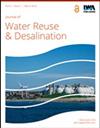Construction and empirical research of the evaluation index system of environmental protection enterprises’ competitiveness based on the Delphi and AHP methods
IF 2.3
Q2 Environmental Science
引用次数: 0
Abstract
The environmental protection industry has become an important support entity for the construction of ecological civilization and economic growth in China. However, there is little research on the competitiveness of environmental protection enterprises (EPEs). The construction of a set of scientific, comprehensive, practical, qualitative, and quantitative evaluation index systems is an important prerequisite for the sustainable and healthy development of the industry. Based on the literature analysis, semi-structured interviews with experts, and the Delphi method, the evaluation indicators for the competitiveness of EPEs were determined. Qualitatively, the evaluation index system of the competitiveness of EPEs contained 5 primary indicators, 12 secondary indicators, and 39 tertiary indicators. The analytic hierarchy process was used to determine the weights of indicators at each level. The primary indicators in order of weighting were organizational management capability, business environment, financial capability, innovation capability, and social responsibility, with corresponding weights of 26.13, 24.82, 21.76, 19.60, and 7.68%, respectively. Eight A-share listed EPEs in the water sector were selected for competitive evaluation. The evaluation index system of EPEs' competitiveness, being scientific-practical, combined, and quantitative, was constructed to provide a reference for the comprehensive evaluation of enterprises and the sustainable and healthy development of the industry.基于德尔菲法和层次分析法的环保企业竞争力评价指标体系构建与实证研究
环保产业已成为我国生态文明建设和经济增长的重要支撑主体。然而,关于环保企业竞争力的研究却很少。构建一套科学、全面、实用、定性、定量的评价指标体系,是行业持续健康发展的重要前提。在文献分析、专家半结构化访谈和德尔菲法的基础上,确定了环保企业竞争力的评价指标。从质量上讲,环保企业竞争力评价指标体系包括5个一级指标、12个二级指标和39个三级指标。采用层次分析法确定各级指标的权重。按权重排序的主要指标是组织管理能力、营商环境、财务能力、创新能力和社会责任,相应的权重分别为26.13、24.82、21.76、19.60和7.68%。水务行业的八家A股上市EPE被选中进行竞争性评估。构建了科学实用、组合定量的环保企业竞争力评价指标体系,为企业综合评价和行业可持续健康发展提供参考。
本文章由计算机程序翻译,如有差异,请以英文原文为准。
求助全文
约1分钟内获得全文
求助全文
来源期刊

Journal of Water Reuse and Desalination
ENGINEERING, ENVIRONMENTAL-WATER RESOURCES
CiteScore
4.30
自引率
0.00%
发文量
23
审稿时长
16 weeks
期刊介绍:
Journal of Water Reuse and Desalination publishes refereed review articles, theoretical and experimental research papers, new findings and issues of unplanned and planned reuse. The journal welcomes contributions from developing and developed countries.
 求助内容:
求助内容: 应助结果提醒方式:
应助结果提醒方式:


